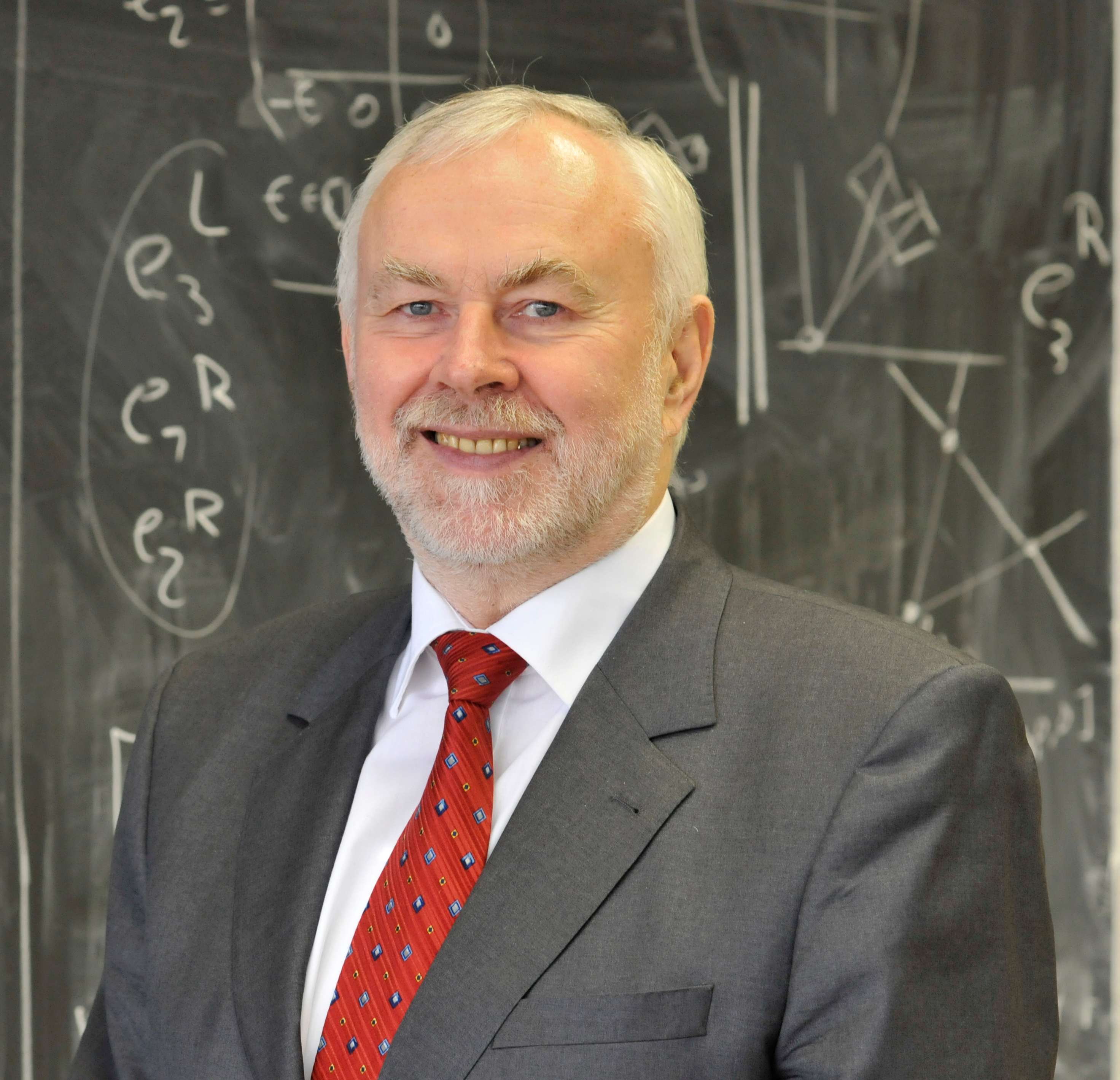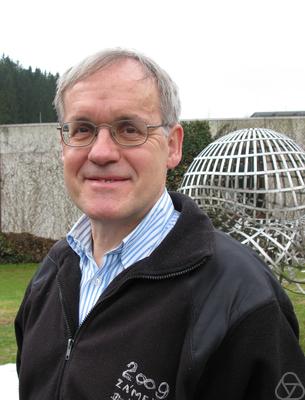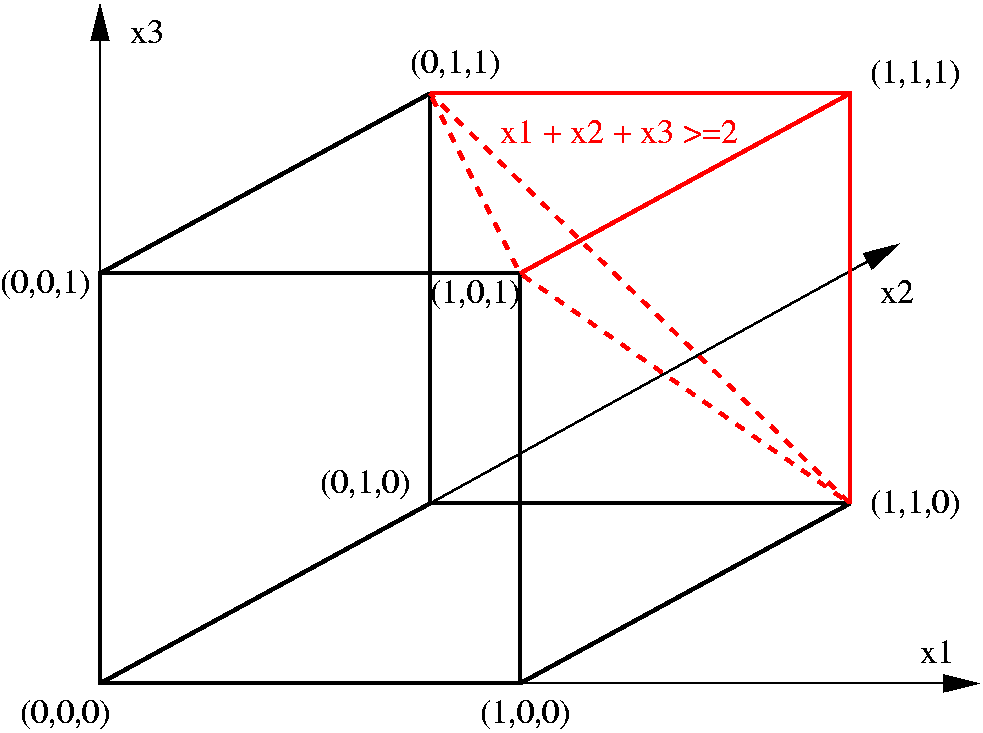|
Martin Grötschel
Martin Grötschel (born 10 September 1948) is a German mathematician known for his research on combinatorial optimization, polyhedral combinatorics, and operations research. From 1991 to 2012 he was Vice President of the Zuse Institute Berlin (ZIB) and served from 2012 to 2015 as ZIB's President. From 2015 to 2020 he was President of the Berlin-Brandenburg Academy of Sciences and Humanities (BBAW). Biography Grötschel was born in Schwelm, Germany, and earned a diploma in mathematics with minor in economics in 1973 from the University of Bochum. He completed a doctorate in 1977 at the University of Bonn under the supervision of Bernhard Korte, and obtained his habilitation at Bonn in the field operations research in 1981. One year later he was appointed full professor for applied mathematics at the University of Augsburg. From 1991 until his retirement at the end of September 2015 he was, while also engaged at ZIB, full professor for information technology at Technical Univers ... [...More Info...] [...Related Items...] OR: [Wikipedia] [Google] [Baidu] |
Institute For Operations Research And The Management Sciences
The Institute for Operations Research and the Management Sciences (INFORMS) is an international society for practitioners in the fields of operations research (O.R.), management science, and analytics. It was established in 1995 with the merger of the Operations Research Society of America (ORSA) and The Institute of Management Sciences (TIMS). Overview INFORMS promotes greater public awareness, interest, and understanding about the benefits of operations research (O.R.) and analytics and provides a variety of programs and services that support lifelong learning and networking for O.R. and analytics professionals. This includes publishing 16 peer-reviewed journals, hosting numerous conferences and meetings, providing continuing education courses and professional certification, and administering dozens of special-interest communities that help professionals network and collaborate with colleagues from around the world. INFORMS is a member of the International Federation of Operation ... [...More Info...] [...Related Items...] OR: [Wikipedia] [Google] [Baidu] |
John Von Neumann Theory Prize
The John von Neumann Theory Prize of the Institute for Operations Research and the Management Sciences (INFORMS) is awarded annually to an individual (or sometimes a group) who has made fundamental and sustained contributions to theory in operations research and the management sciences. The Prize named after mathematician John von Neumann is awarded for a body of work, rather than a single piece. The Prize was intended to reflect contributions that have stood the test of time. The criteria include significance, innovation, depth, and scientific excellence. The award is $5,000, a medallion and a citation. The Prize has been awarded since 1975. The first recipient was George B. Dantzig for his work on linear programming. List of recipients * 2022 Vijay Vazirani * 2021 Alexander Shapiro * 2020 Adrian Lewis * 2019 Dimitris Bertsimas and Jong-Shi Pang * 2018 Dimitri Bertsekas and John Tsitsiklis ** ''for contributions to Parallel and Distributed Computation as well as Neurodyna ... [...More Info...] [...Related Items...] OR: [Wikipedia] [Google] [Baidu] |
American Mathematical Society
The American Mathematical Society (AMS) is an association of professional mathematicians dedicated to the interests of mathematical research and scholarship, and serves the national and international community through its publications, meetings, advocacy and other programs. The society is one of the four parts of the Joint Policy Board for Mathematics and a member of the Conference Board of the Mathematical Sciences. History The AMS was founded in 1888 as the New York Mathematical Society, the brainchild of Thomas Fiske, who was impressed by the London Mathematical Society on a visit to England. John Howard Van Amringe was the first president and Fiske became secretary. The society soon decided to publish a journal, but ran into some resistance, due to concerns about competing with the American Journal of Mathematics. The result was the '' Bulletin of the American Mathematical Society'', with Fiske as editor-in-chief. The de facto journal, as intended, was influential ... [...More Info...] [...Related Items...] OR: [Wikipedia] [Google] [Baidu] |
Fulkerson Prize
The Fulkerson Prize for outstanding papers in the area of discrete mathematics is sponsored jointly by the Mathematical Optimization Society (MOS) and the American Mathematical Society (AMS). Up to three awards of $1,500 each are presented at each (triennial) International Symposium of the MOS. Originally, the prizes were paid out of a memorial fund administered by the AMS that was established by friends of the late Delbert Ray Fulkerson to encourage mathematical excellence in the fields of research exemplified by his work. The prizes are now funded by an endowment administered by MPS. Winners SourceMathematical Optimization Society* 1979: ** Richard M. Karp for classifying many important NP-complete problems. ** Kenneth Appel and Wolfgang Haken for the four color theorem. ** Paul Seymour for generalizing the max-flow min-cut theorem to matroids. * 1982: ** D.B. Judin, Arkadi Nemirovski, Leonid Khachiyan, Martin Grötschel, László Lovász and Alexander Schrijver fo ... [...More Info...] [...Related Items...] OR: [Wikipedia] [Google] [Baidu] |
BBAW
The Berlin-Brandenburg Academy of Sciences and Humanities (german: Berlin-Brandenburgische Akademie der Wissenschaften), abbreviated BBAW, is the official academic society for the natural sciences and humanities for the German states of Berlin and Brandenburg. Housed in three locations in and around Berlin, Germany, the BBAW is the largest non-university humanities research institute in the region.BBAW Introduction retrieved 06-21-2012. The BBAW was constituted in 1992 by formal treaty between the governments of Berlin and Brandenburg on the basis of several older academies, including the historic Prussian Academy of Sciences from 1700 and ... [...More Info...] [...Related Items...] OR: [Wikipedia] [Google] [Baidu] |
Open Access
Open access (OA) is a set of principles and a range of practices through which research outputs are distributed online, free of access charges or other barriers. With open access strictly defined (according to the 2001 definition), or libre open access, barriers to copying or reuse are also reduced or removed by applying an open license for copyright. The main focus of the open access movement is "peer reviewed research literature". Historically, this has centered mainly on print-based academic journals. Whereas non-open access journals cover publishing costs through access tolls such as subscriptions, site licenses or pay-per-view charges, open-access journals are characterised by funding models which do not require the reader to pay to read the journal's contents, relying instead on author fees or on public funding, subsidies and sponsorships. Open access can be applied to all forms of published research output, including peer-reviewed and non peer-reviewed academic journal ... [...More Info...] [...Related Items...] OR: [Wikipedia] [Google] [Baidu] |
Ellipsoid Method
In mathematical optimization, the ellipsoid method is an iterative method for minimizing convex functions. When specialized to solving feasible linear optimization problems with rational data, the ellipsoid method is an algorithm which finds an optimal solution in a number of steps that is polynomial in the input size. The ellipsoid method generates a sequence of ellipsoids whose volume uniformly decreases at every step, thus enclosing a minimizer of a convex function. History The ellipsoid method has a long history. As an iterative method, a preliminary version was introduced by Naum Z. Shor. In 1972, an approximation algorithm for real convex minimization was studied by Arkadi Nemirovski and David B. Yudin (Judin). As an algorithm for solving linear programming problems with rational data, the ellipsoid algorithm was studied by Leonid Khachiyan; Khachiyan's achievement was to prove the polynomial-time solvability of linear programs. This was a notable step from a theoretical ... [...More Info...] [...Related Items...] OR: [Wikipedia] [Google] [Baidu] |
Alexander Schrijver
Alexander (Lex) Schrijver (born 4 May 1948 in Amsterdam) is a Dutch mathematician and computer scientist, a professor of discrete mathematics and optimization at the University of Amsterdam and a fellow at the Centrum Wiskunde & Informatica in Amsterdam.Profile CWI, retrieved 2012-03-30. Since 1993 he has been co-editor in chief of the journal '' Combinatorica''.''Combinatorica'' journal home page Springer, retrieved 2012-03-30. Biography Schrijver earned his Ph.D. in 1977 from the[...More Info...] [...Related Items...] OR: [Wikipedia] [Google] [Baidu] |
László Lovász
László Lovász (; born March 9, 1948) is a Hungarian mathematician and professor emeritus at Eötvös Loránd University, best known for his work in combinatorics, for which he was awarded the 2021 Abel Prize jointly with Avi Wigderson. He was the president of the International Mathematical Union from 2007 to 2010 and the president of the Hungarian Academy of Sciences from 2014 to 2020. In graph theory, Lovász's notable contributions include the proofs of Kneser's conjecture and the Lovász local lemma, as well as the formulation of the Erdős–Faber–Lovász conjecture. He is also one of the eponymous authors of the LLL lattice reduction algorithm. Early life and education Lovász was born on March 9, 1948, in Budapest, Hungary. Lovász attended the Fazekas Mihály Gimnázium in Budapest. He won three gold medals (1964–1966) and one silver medal (1963) at the International Mathematical Olympiad. He also participated in a Hungarian game show about math prodigies. ... [...More Info...] [...Related Items...] OR: [Wikipedia] [Google] [Baidu] |
Cutting-plane Method
In mathematical optimization, the cutting-plane method is any of a variety of optimization methods that iteratively refine a feasible set or objective function by means of linear inequalities, termed ''cuts''. Such procedures are commonly used to find integer solutions to mixed integer linear programming (MILP) problems, as well as to solve general, not necessarily differentiable convex optimization problems. The use of cutting planes to solve MILP was introduced by Ralph E. Gomory. Cutting plane methods for MILP work by solving a non-integer linear program, the linear relaxation of the given integer program. The theory of Linear Programming dictates that under mild assumptions (if the linear program has an optimal solution, and if the feasible region does not contain a line), one can always find an extreme point or a corner point that is optimal. The obtained optimum is tested for being an integer solution. If it is not, there is guaranteed to exist a linear inequality th ... [...More Info...] [...Related Items...] OR: [Wikipedia] [Google] [Baidu] |



